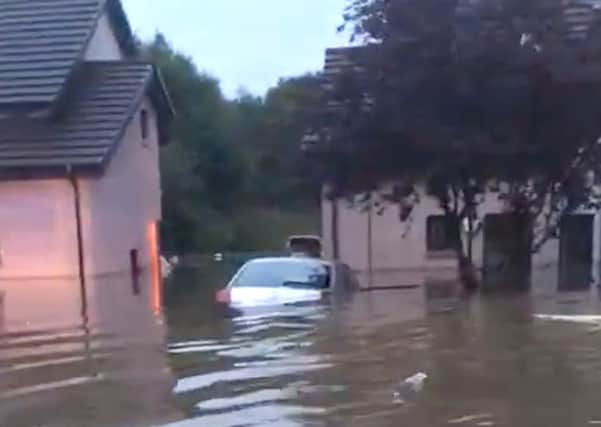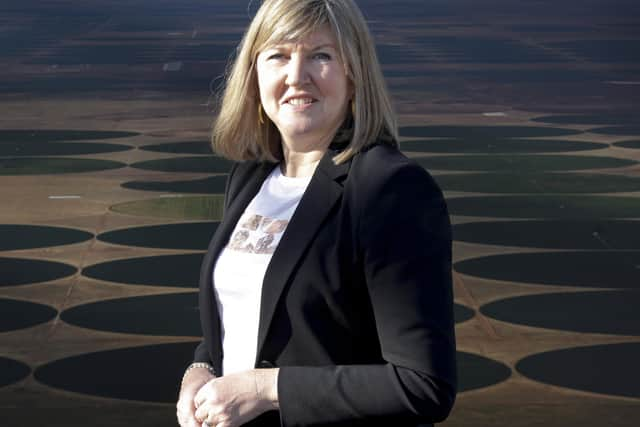Floods will only get worse as we lose more green space – Alison Johnstone


In the Evening News last year, I highlighted a report revealing the worrying loss of green space in Edinburgh. In October, Scotland’s Centre of Expertise for Waters revealed that in the 25 years between 1990 and 2015, Edinburgh lost 11 hectares of land to urbanisation every year. That is a loss of about 15 football pitches of land every year, or 325 over the period, equivalent to 1.6 times the area of Arthur’s Seat.
About half of this loss is down to what the report classified as ‘urban creep’, where green land, so effective at sopping up excess rainwater, is already considered to be urban space, but is subsequently removed. Guidance published by the Scottish Environmental Protection Agency highlights urban creep as a major contributor, along with climate change, of urban flooding.
Advertisement
Hide AdAdvertisement
Hide AdOn the night of 11/12 August, residents were treated to some of the most beautiful and spectacular lightning seen in Edinburgh for many decades. But down below, some of our streets flooded with terrifying speed, compelling residents to rush to protect their families and homes.


Again, just last week, more of my constituents, this time in Broxburn, had their homes flooded due to heavy rain on Thursday. The rainwater was so high, right up to some car roofs, that several residents had to be rescued by the fire service in dinghies. Scottish Canals concluded that the flooding was the result of heavy rainfall and surface water run-off.
It’s vitally important that in every instance where we replace green space with tarmac or concrete, we consider fully the impact this has. If we remove foliage and ground that has the ability to soak up and slow down water, we need to understand the consequences and mitigate these, ensuring that where gardens are replaced with driveways, the new surface is permeable and has good drainage. Every single garden given over to planting is not only helping reduce carbon and make life easier for pollinators, it’s helping alleviate flooding too.
It has become increasingly clear that too many of our street drains are unable to handle the amount of rainwater now flowing into them. I’ve received reports of broken drains, some so choked with leaves and mud that they have grass growing out of the top. Over the years, too many residents have been impacted by flooding issues which have taken many years to resolve. We have to respond more quickly.
Advertisement
Hide AdAdvertisement
Hide AdQuestions need to be asked about why so many of our drains don’t appear to be in a fit state; whether there are drains where they are needed, and whether council staff are properly resourced to keep them free-flowing and in good repair.
My Edinburgh Green councillor colleague Gavin Corbett last week successfully secured a commitment that the council should urgently examine what steps can be taken to mitigate the scale of flooding in the future, including working with Scottish Water; better maintaining and unblocking drains, and addressing our loss of green space.
But ultimately, we also need to finally get a grip on climate change. There is abundant scientific evidence to suggest that the increase in extreme weather events is a direct consequence of climate change. If we don’t, the flooding that has caused so much disruption to local residents and businesses in recent weeks will only get worse.
Alison Johnstone is a Green MSP for Lothian
Comment Guidelines
National World encourages reader discussion on our stories. User feedback, insights and back-and-forth exchanges add a rich layer of context to reporting. Please review our Community Guidelines before commenting.